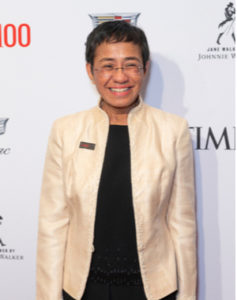Blog
1815
paged,page-template,page-template-blog-large-image,page-template-blog-large-image-php,page,page-id-1815,page-parent,paged-18,page-paged-18,theme-bridge,bridge-core-3.1.7,woocommerce-no-js,qodef-qi--no-touch,qi-addons-for-elementor-1.7.0,qode-page-transition-enabled,ajax_fade,page_not_loaded,,qode-title-hidden,columns-4,qode-child-theme-ver-1.0.0,qode-theme-ver-30.4.2,qode-theme-bridge,qode_header_in_grid,qode-wpml-enabled,wpb-js-composer js-comp-ver-7.6,vc_responsive,elementor-default,elementor-kit-41156
29 Jun 2020 Toppling statues are opportunities for collective reflection
Protests against racism unleashed by the killing of George Floyd, an unarmed Black man, at the hands of police in Minneapolis spread all over the United States, Canada, and parts of Europe in May and June of this year.22 Jun 2020 Protecting journalists is a balancing act between dictums and dictators
The Philippines is facing another crackdown on media freedoms. [caption id="attachment_26326" align="alignleft" width="237"] Maria Ressa. Photo: Lev Radin/Shutterstock[/caption]
On June 15, 2020, a court in the capital Manila, convicted former CNN journalist Maria Ressa and former Rappler writer Reynaldo Santos Jr. of cyber libel for publishing an article that implicated a prominent businessman who was allegedly involved in human trafficking and drug smuggling.
Maria Ressa. Photo: Lev Radin/Shutterstock[/caption]
On June 15, 2020, a court in the capital Manila, convicted former CNN journalist Maria Ressa and former Rappler writer Reynaldo Santos Jr. of cyber libel for publishing an article that implicated a prominent businessman who was allegedly involved in human trafficking and drug smuggling.
15 Jun 2020 Time to stand up for journalism and journalists – again!
Democracy stands or falls by its guarantee of freedom of expression and opinion and an independent press. Two tragic events have thrown that statement into sharp relief: the global coronavirus pandemic and the murder of George Floyd in the USA.08 Jun 2020 Upgrading digital infrastructure to serve all people everywhere
Ownership of mobile phones, especially smartphones, is spreading rapidly across the globe. Yet, there are still many people in emerging economies who do not own a mobile phone, or who share one with others. According to the Pew Research Center, in 2019 mobile divides were most pronounced in Venezuela, India, and the Philippines, countries where three-in-ten adults do not own a mobile phone.01 Jun 2020 Advocating freedom from fear
At a time when the world is rightly focused on the coronavirus pandemic and its long-term consequences, under-reported news includes how far down the road we are (or not) toward the abolition of nuclear weapons. The report “Enough is Enough: Global Nuclear Weapons Spending in 2020”...






